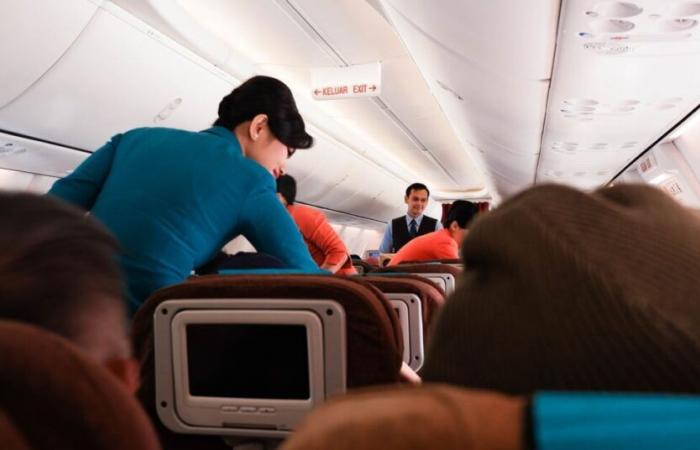The job of a flight attendant is a dream for many people, particularly for its glamorous side and the promise of travel around the world. But what about the remuneration? Between start of career and positions of responsibility, the gaps are significant. Let's find out together what a flight attendant really earns and the criteria that influence this salary.
A profession at the heart of aviation
Being a flight attendant is not just about handing out meal trays or welcoming passengers with a bright smile. Above all, it is about ensuring their safety and comfort throughout the flight. This includes checking equipment, reminding people of safety instructions and sometimes managing delicate situations, such as turbulence or sick passengers.
When my aunt, a flight attendant for 15 years, shares her anecdotes, she often emphasizes the diversity of the tasks. “One day you can reassure a scared child, and the next day you can handle a case ofemergency medical,” she says. But despite the demands of the job, what about the income?
How much does a flight attendant earn at the start of their career?
When starting out, the salary of a flight attendant ranges between 1,500 and 2,500 € gross per month. This figure mainly depends on the airline and the type of flight (short or long haul). Low-cost airlines, for example, often offer salaries 30% lower than those of traditional airlines like Air France.
With experience, salaries increase significantly. After a few years, a hostess can expect to earn between 2,500 and 4,000 € gross monthlyespecially if she works for a reputable international company. Positions with more responsibility, such as cabin manager, even make it possible to reach up to €6,000 gross per monthnot counting bonuses.
Bonuses and benefits that make the difference
Flight attendants often benefit from various financial supplements. THE night flight rewardsTHE long-haul allowances or even the meal and accommodation costs abroad are added to the basic salary. These benefits can represent a significant part of the remuneration, especially for those flying regularly to destinations distant.
In addition, some companies offer discounts on plane tickets, which may appeal to travel enthusiasts. “When I worked for a big company, I could visit cities like Tokyo or New York for a fraction of the price,” recalls Julie, a former hostess converted to tourism.
How to become a flight attendant?
Unlike certain professions, there is no strictly compulsory diploma to become a flight attendant. However, here are the main steps to integrate this profession:
- A minimum baccalaureate level : If the baccalaureate is often sufficient, a diploma in tourism, hospitality or foreign languages is an asset. For example, a BTS Tourism or an LEA license can make the difference.
- A good level of English : Fluency in English is essential. Companies often require a minimum score of 720 on the TOEICvalidated for less than two years. A second language is also a plus.
- Le CCA certificate : The Cabin Crew Attestation is the certified training to become a flight attendant. Provided by specialized schools or by the airlines themselves, it covers the basics of the profession: safety, first aid and passenger management.
- Good physical condition : Although there are no longer strict height criteria, you must be in good health to tolerate long hours on your feet and frequent time differences.
And for the stewards?
The process for becoming a flight attendant is similar to that of flight attendants. The main steps include mastering English, being in good physical condition and obtaining the CCA. On the other hand, some companies place more emphasis on customer experience or specific skills depending on the destinations served.
A piece of advice: focus on a well-written CV that highlights your interpersonal skills and your sense of adaptability. During recruitment sessions, show that you are ready to handle unforeseen events calmly and professionally.
Conclusion: a demanding but rewarding profession
The job of flight attendant, although often idealized, remains demanding in many aspects. While salaries at the start of your career may seem modest, the prospects for advancement, bonuses and benefits more than compensate for this. For those with a passion for travel and human interaction, it's a career that, despite its challenges, offers unique experiences and unforgettable memories. So, are you ready to embark?






